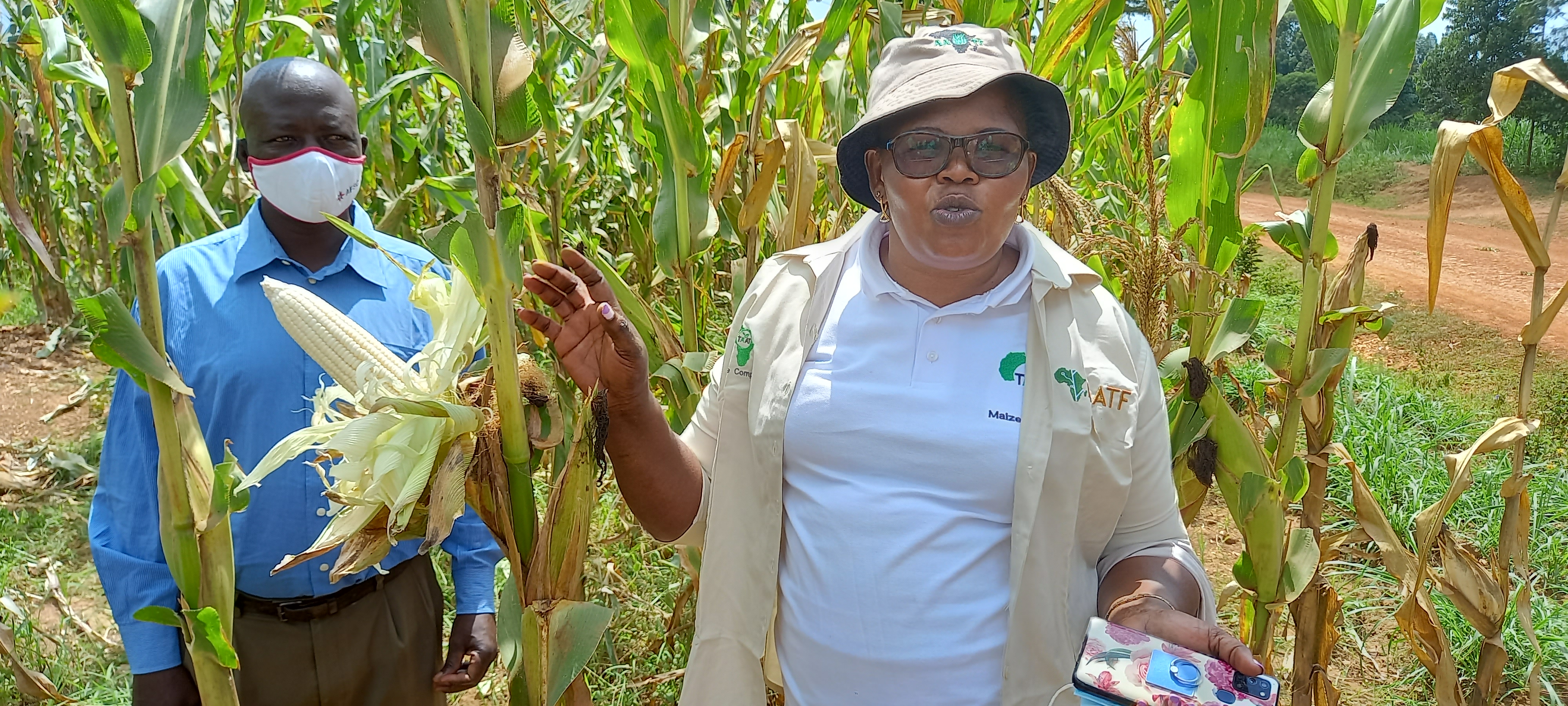By Dr Munyaradzi Jonga.
The availability of quality seeds is critical to enhance crop productivity for a food and nutrition secure continent. However, this has remained a challenge in Sub-Saharan Africa (SSA) region due to challenges brought about by drought, pest and diseases that have hampered productivity.
Nevertheless, there is still huge potential to maximize Africa’s agricultural productivity by leveraging on already available high-quality seeds of new improved varieties produced from different breeding programmes within the region.
Whereas several crop varieties have been released and registered in recent years, countries in the region are still lagging in achieving seed and food security due to low adoption of new seed-based technologies by farmers.
To help farmers address the challenge of drought, AATF and its partners under the Water Efficient Maize for Africa (WEMA) Project in seven SSA countries including Kenya, Tanzania, Uganda, Ethiopia, Mozambique, South Africa, and Nigeria, used conventional breeding techniques to develop and release over 120 climate smart maize hybrids (popularly known as DroughtTEGO) that are water efficient and tolerant to moderate drought. The DroughtTEGO hybrids are adapted to mid-altitude agro-ecologies.
These varieties are now available to farmers with satisfactory grain yields under moderate drought conditions, with yield performance of 8 to 12 tonnes per hectare under optimum rainfall conditions compared to the average of 1.4 tonnes per hectare in SSA.
The DroughtTEGO seed-based technology is an asset for mitigating the impact of dry spells and low rainfall which are limiting dryland maize production more frequently occasioned by climate change; and it has widely been shown to increase productivity, improve yield stability, and reduce the risk of complete crop failure in maize production zones of SSA using recommended good agricultural practices.
To ensure the innovation achieved the goal it was supposed to, scaling these hybrids to farmers beyond the project countries and in good time to have the desired impact is critical.
It is for this reason that the African Development Bank launched the Technologies of African Agricultural Transformation (TAAT) in 2018 that included the TAAT Maize Compact with AATF as the lead implementer.
The TAAT Maize Compact is being implemented in 11 countries in Africa including Kenya, Uganda, Tanzania, Ethiopia, Rwanda, Zambia, Zimbabwe, Nigeria, Ghana, Cameroon and Benin with the goal of scaling out and disseminating high yielding climate-smart maize varieties including the DroughtTEGO hybrids and complementary technologies that included appropriate fertilizer blends, efficient pest, disease and weed management, post-harvest management and mechanization of farming operations to create more demand for these maize technologies and improve household incomes.
Working with key players along the maize value chain that included the national agricultural research systems, extension systems, grain off-takers and millers, the TAAT Maize Partnership reached over 2.7 million farmers in just under 30 months of its inception who benefited from the climate smart varieties with increased maize productivity.
To ensure production and dissemination of adequate seed, the TAAT Maize Compact entered into partnership with 40 seed companies realising 24,500 tons of climate smart certified seeds across 7 countries including Kenya, Tanzania, Uganda, Zambia, Zimbabwe, Nigeria and Ghana.
Linking farmers to markets ensures they have an outlet that benefits their sweat. This is often the weak link in moving farming from subsistence to business. The Compact was able to facilitate functional market linkages to grain off-takers in Kenya and Nigeria where over 150,000 farmers were able to deliver their produce for processing into maize products, meaning there was ready market and farmers can do farming as a business.
These developments have directly contributed to improving the livelihoods of smallholder farmers in the region.
Significant agricultural transformation is within our reach due to the availability of relevant technologies that provide solutions to challenges being faced by farmers. Our farmers can improve their productivity, increase their wealth and health and become sustainable if they have access to the right mix of farming technologies and innovations. This further proves that we have agricultural technologies and expertise in Africa and what we require is significant investment in agriculture to produce the desired results.
The writer is the Seeds Production Manager at AATF




















































































